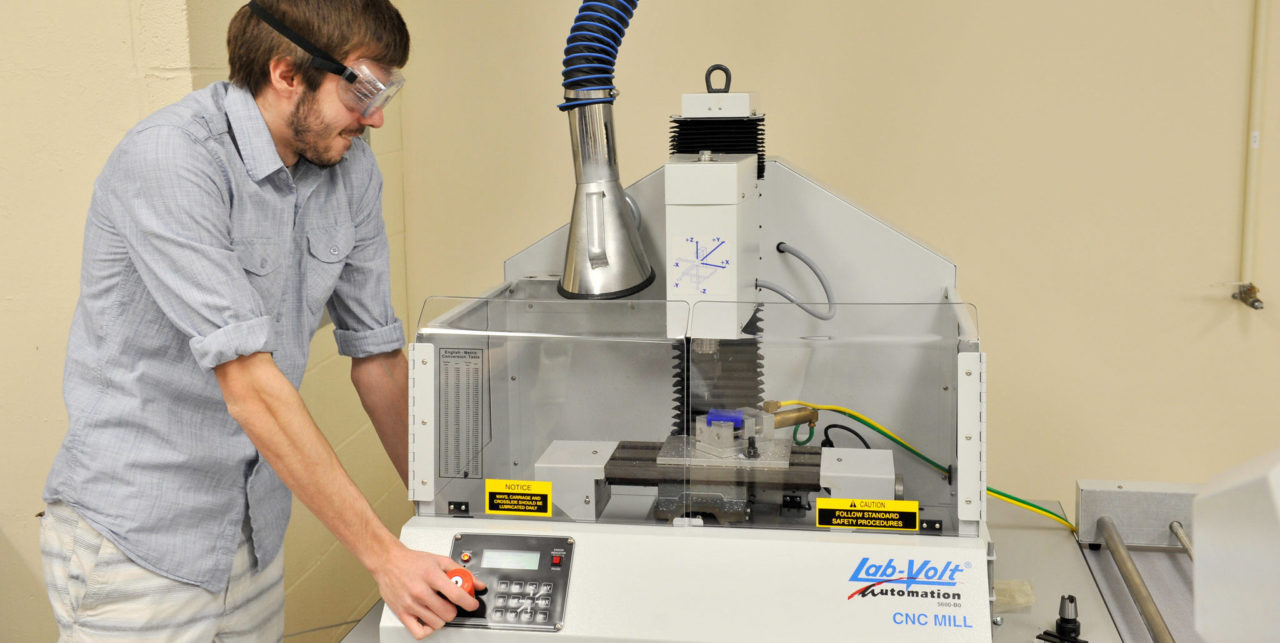Mechanical Engineering Technology Minor

(for non-mechanical engineering technology majors)
The minor in Mechanical Engineering Technology consist of 15 credits and is relevant to students with appropriate mathematics and science backgrounds. This minor provides students with the fundamental aspects of Mechanical Engineering Technology, and it can bring them additional employment opportunities and career options. To take any course in the minor, a student must meet all prerequisites for that course. The course distribution is as follows:
Required Courses (12 credits)
- EGTM2232 Mechanical Measurement and Devices (3 credits)
- EGTM2235 Manufacturing Processes (3 credits)
- EGTM3248 Mechanical Technology Design I (3 credits)
- EGTM3250 Mechanical Technology Design II (3 credits)
Elective (3 credits)
One course must be chosen from the following:
- EGTG2221 Statics (3 credits)
- EGTG2228 Strength of Materials (3 credits)
- EGTG3351 Applied Thermodynamics (3 credits)
- EGTG3431 Dynamics (3 credits)
- EGTG4224 Process and Electro/Mechanical Control Systems Technology (3 credits)
- EGTG4225 Industrial Automation (3 credits)
- EGTG4254 Fluid Mechanics (3 credits)
- EGTM4356 Stress and Vibration Analyses (3 credits)